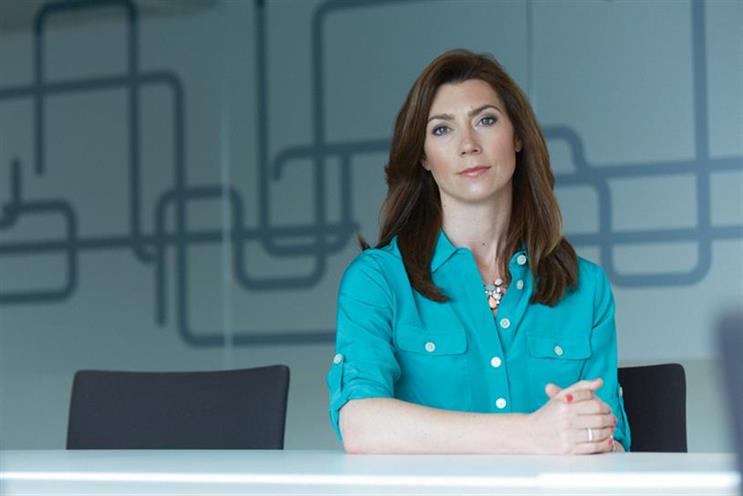And so I leave my second World Economic Forum gathering at Davos, cogs whirring, very inspired… and absolutely exhausted, as of course the day job doesn’t stop.
This year’s theme of "Responsible and Responsive" leadership felt spot on. Without delving too deeply into the political climate (felt throughout the countdown to inauguration day), I interpreted it as a call for leaders to demonstrate their integrity, values and willingness to hear unpalatable things and not wallow in their own echo chamber.
So why attend a gathering criticised for being the ultimate embodiment of that echo chamber, just with snow, canapés and a side dish of elitism?
While I empathise to a degree with the elitism point, if you get the chance to go, then go. Join the debate. You have to be there to have a voice. You have to be in the room to be heard, so as an unapologetic advocate of stepping up and saying to yes to opportunities, that’s what I did.
Action matters more than words. Davos was called out by Arianna Huffington as "ahead of time in trends but not in action." Unsurprisingly this year, panels were keen to offer clear, tangible takeouts. Davos added a more contemplative yin to its actionable yang with morning mindfulness sessions and pre-event "reflection time."
Save the Children International chief executive Helle Thorning-Schmidt, a former Danish prime minister, defined responsive leadership as listening to everyone, even those you might not agree with. We’ll all need to become way more comfortable with ambiguity and draw on collective thinking in the future.
Responsible leadership means taking charge of your own wellbeing to be at your best, physically and mentally. It means putting to bed the 1980s "lunch is for wimps" management style and proving success shouldn’t involve burn out. Take note Trump, the poster child of sleep-deprived mania with his ill-considered 3am tweets….
Responsibility and ethics recurred as a theme in the discussions around data and AI. With data now the basis of competitiveness, access to industry data is a given: it is possessing unique data that gives you an edge. Companies also have to get way better at protecting consumer data – the comes into effect May 2018 and so far, it’s not being taken seriously enough.
Lessons from IBM, leaders in the AI space with Watson predicted to touch one billion people this year, emphasised issues of purpose (AI in service of what?), transparency and building trust around this unknown capability.
This isn’t a case of man or machine, but as IBM’s super impressive Ginni Rometty describes it, it is a symbiotic relationship. Memorably, from Thomas Friedman, we heard how AI is really IA, our Intelligent Assistance, our Intelligent Assistant and our Intelligent Algorithm.
But AI was a dominant theme, and for marketing we can see that AI, combined with great minds and humanistic thinkers, will create an amazing opportunity to turn more information into more intelligence. Brands have already moved from talking at consumers, to engaging with those we wish to influence. That engagement has been largely manual and so time lagged and "segmented", rather than truly personalised.
AI moves us from search to suggestion, from typing and tapping back to voice, and frees us from admin drudgery releasing talent that is currently wasted on repetitive, low skill tasks.
It also raises fascinating ethical questions around governance and accountability (who is ultimately responsible for algorithms’ decisions?) and illuminates where we are now as a species. With AI applications still nascent, we have an opportunity to redefine stereotyped gender roles - why should AI assistants be "female" and legal AIs "male"?
Which leads me unapologetically into gender equality and the huge global leadership gap: women make up just 13% of country leaders, and lead just .
The Female Quotient’s "Girls’ Lounge" was back with a glamourous bang, an amazing empowered space for women and men. At one powerful moment, not one man in the room recalled ever being called bossy; every woman had. Clearly cultural conditioning and unconscious bias still run deep.
This year, Davos women accounted for just one in five of those present. It’s actually a record high – but this small yet symbolic achievement shouldn’t detract from the depressing fact that closing of the gender gap has stalled, and will take 170 years to seal at this rate.
Reassuringly, businesses are slowly waking up to the cost of missing out on amazing female talent. Companies like BT and Barclays are already helping skill up teachers and pupils in the new economy of coding at an early age, and crucially for girls as well as boys. Education is equality’s starting point especially as we head into the fourth industrial revolution with its focus on new skills. We need girls receiving mandatory STEM education and governments pledging, as the UK has, to invest in education at all life stages.
We’re coming out of the fog in some ways, heading right into the maelstrom in others, requiring more listening, less talk and plenty of bold decisive action. Our industry in particular has much to reap from cultural and tech advances, so long as we approach them responsibly and responsively.
Lindsay Pattison is worldwide chief executive of Maxus


